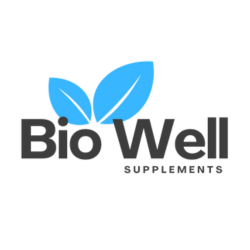When it comes to improving your health and wellness, supplements can play a crucial role. Whether you’re aiming to boost your immune system, enhance your workout performance, or improve sleep quality, understanding supplements is key.
This ultimate guide to supplements provides an in-depth look at the types of supplements available, their benefits, and how to choose the right ones for your needs. We’ve also included expert recommendations and insights to ensure you make informed decisions.
>>Check out this guide on supplements on Amazon<<
What Are Supplements?
Supplements are products designed to augment your diet by providing nutrients, herbs, or other beneficial substances. They come in various forms, including pills, powders, capsules, and liquids. Common categories include vitamins, minerals, protein powders, amino acids, and herbal extracts.
Why Are Supplements Important?
Even with a balanced diet, it can be challenging to obtain all the nutrients your body needs. Factors such as modern farming practices, busy lifestyles, and specific health conditions can lead to deficiencies. Supplements help fill these gaps and provide targeted benefits. For example, athletes may require extra protein for muscle repair, while individuals with limited sun exposure might benefit from vitamin D supplementation.
Moreover, supplements can support specific health goals such as enhancing immunity, improving skin health, or managing stress. The right combination of supplements can optimize bodily functions and prevent potential deficiencies that may lead to long-term health issues.
Common Types of Supplements and Their Benefits
The world of supplements is incredibly diverse, with options to support nearly every aspect of health and wellness. From essential vitamins to specialized herbal remedies, understanding the various types of supplements available can help you choose those that best meet your needs. This ultimate guide of supplements explores some of the most common types and their key benefits.
1. Vitamins and Minerals
- Vitamin D: Supports bone health and immune function, particularly in people with limited sun exposure.
- Vitamin C: Enhances immunity, helps reduce the duration of colds, and improves skin health by promoting collagen production.
- Magnesium: Plays a critical role in over 300 biochemical reactions in the body, including muscle relaxation and energy production.
- Iron: Essential for oxygen transport in the blood and crucial for preventing anemia, especially in women and athletes.
2. Protein Supplements
- Ideal for muscle repair and growth, protein supplements are especially beneficial for athletes, bodybuilders, and those with higher protein needs.
- Common types include whey (fast-digesting), casein (slow-digesting), and plant-based proteins (great for vegans and those with allergies).
3. Omega-3 Fatty Acids
- Supports heart and brain health by reducing inflammation, improving cholesterol levels, and enhancing cognitive function.
- Found in fish oil, krill oil, and plant-based options like flaxseed oil.
4. Probiotics
- Improve gut health and digestion by balancing the gut microbiome. Probiotics can alleviate bloating, improve nutrient absorption, and support immunity.
- Available in capsules, powders, and fermented foods like yogurt and kefir.
5. Herbal Supplements
- Ashwagandha: An adaptogen that helps the body cope with stress and may improve energy levels.
- Turmeric: Known for its powerful anti-inflammatory and antioxidant properties, often used for joint and skin health.
- Ginkgo Biloba: Enhances cognitive function and may improve memory and concentration.
6. Performance Enhancers
- Creatine: Boosts energy production in muscles, improving strength and endurance during high-intensity workouts.
- BCAAs: Branched-Chain Amino Acids support muscle recovery, reduce soreness, and prevent muscle breakdown during prolonged exercise.
Choosing the Right Supplements for Your Goals
Everyone has unique health and wellness objectives, and supplements can play a pivotal role in achieving them. This chapter helps you match your goals—whether it’s improving fitness, managing stress, or supporting digestion—with the right supplements to get you on track.
For General Health
- Multivitamins: Cover a wide range of nutrient needs and act as a safety net for dietary gaps.
- Omega-3s: Maintain heart health, reduce inflammation, and support brain function.
- Probiotics: Enhance gut health, which is linked to overall well-being and immunity.
For Fitness Enthusiasts
- Protein powders: Provide the building blocks for muscle repair and growth after workouts.
- Creatine: Improves short bursts of high-intensity performance, ideal for weightlifting and sprinting.
- Electrolytes: Essential for maintaining hydration and preventing cramps during prolonged exercise.
For Stress and Sleep
- Magnesium: Calms the nervous system and helps regulate the body’s stress response.
- Melatonin: A hormone that signals the body to prepare for sleep, particularly helpful for jet lag or irregular sleep patterns.
- Adaptogens (e.g., ashwagandha): Help the body adapt to stress and maintain balance.
For Cognitive Performance
- Nootropics: Enhance memory, focus, and overall brain function.
- Omega-3s: Support brain health and cognitive resilience.
- Ginkgo Biloba: May improve mental clarity and reduce age-related cognitive decline.
For Skin, Hair, and Nails
- Collagen: Promotes skin elasticity and strengthens hair and nails.
- Biotin: Supports hair growth and nail health.
- Vitamin E: Enhances skin hydration and reduces signs of aging.
For Immune Support
- Vitamin C: Boosts immunity and helps combat infections.
- Zinc: Essential for immune cell function.
- Elderberry: May reduce the severity and duration of colds and flu.
For Digestive Health
- Probiotics: Maintain a healthy gut microbiome.
- Fiber supplements: Promote regular bowel movements and improve digestion.
- Digestive enzymes: Help break down food and alleviate bloating.
For Weight Loss
- Green tea extract: Boosts metabolism and supports fat burning.
- Garcinia Cambogia: Helps curb appetite and reduce fat storage.
- CLA (Conjugated Linoleic Acid): Promotes fat loss while preserving muscle mass.
For Liver Health
- Milk Thistle: Supports liver detoxification and repair.
- N-acetylcysteine (NAC): Enhances glutathione production for liver protection.
- Dandelion Root: May improve liver function and reduce inflammation.
How to Use Supplements Safely
Safety is paramount when it comes to incorporating supplements into your routine. Misuse or overuse can lead to adverse effects, while selecting the wrong product can render it ineffective. This chapter provides practical advice on how to use supplements responsibly and avoid common pitfalls.
1. Consult a Healthcare Professional
- Always consult a doctor or dietitian before starting new supplements, especially if you have underlying health conditions or take medication to avoid interactions.
2. Follow Dosage Recommendations
- Overdosing on certain supplements can lead to adverse effects, such as toxicity with fat-soluble vitamins (A, D, E, K).
- Stick to the recommended daily allowance (RDA) or consult your healthcare provider for personalized advice.
3. Check for Quality Assurance
- Look for third-party certifications such as NSF, USP, or Informed Choice to ensure product quality, potency, and safety.
4. Avoid Harmful Additives
- Read labels carefully and steer clear of products with artificial fillers, colors, or additives that may cause adverse reactions or reduce efficacy.
Myths and Misconceptions About Supplements
The supplement industry is rife with misinformation, which can make it difficult to separate fact from fiction. This chapter aims to debunk common myths and misconceptions, empowering you with accurate information to make informed decisions.
Myth 1: Supplements Can Replace a Healthy Diet
- Supplements should complement, not replace, a nutritious diet. Whole foods provide a range of nutrients and fiber that supplements alone cannot.
Myth 2: More Is Always Better
- Overconsumption can lead to side effects, such as kidney damage from excessive protein intake or liver issues from high doses of certain vitamins.
Myth 3: All Supplements Are the Same
- Quality varies widely among brands. Low-quality supplements may contain contaminants or inaccurate dosages. Always choose reputable brands with transparent practices.
Top Supplement Brands and Recommendations
With so many supplement brands on the market, it can be challenging to identify high-quality options. This chapter highlights trusted brands and their standout products, providing a helpful guide for your supplement shopping journey.
1. Best Multivitamins
- Garden of Life: Organic, non-GMO options that cater to different demographics, such as men, women, and seniors.
- Nature Made: Affordable and widely available, offering a broad spectrum of essential vitamins and minerals.
2. Top Protein Powders
- Optimum Nutrition Gold Standard Whey: A highly trusted brand known for its quality and flavor variety.
- Orgain Organic Plant-Based Protein: Ideal for vegans, featuring clean ingredients and excellent taste.
3. Omega-3 Supplements
- Nordic Naturals: Provides high-quality fish oil with rigorous testing for purity and freshness.
- Viva Naturals: An affordable option that still maintains high standards of purity and potency.
4. Best Probiotics
- Culturelle: Offers targeted gut health support with strains backed by research.
- Align: Recommended by healthcare professionals for its proven efficacy in improving digestive health.
How to Spot a High-Quality Supplement
Not all supplements are created equal. Some products deliver exceptional results, while others fall short due to poor quality or misleading claims. This chapter walks you through the key attributes of high-quality supplements and how to identify them.
1. Transparent Labeling
- The label should list all ingredients, including dosages, sources, and any potential allergens. Avoid proprietary blends unless details are provided.
2. Third-Party Testing
- Verify if the product has been independently tested for purity and potency by reputable organizations like ConsumerLab or NSF.
3. Positive Reviews and Testimonials
- Look for reviews from reputable sources, such as medical websites or verified customers, to gauge effectiveness and user satisfaction.
4. Reputable Brand
- Choose brands with a strong history of quality, transparent sourcing practices, and adherence to regulatory standards.
The Future of Supplements
The supplement industry is constantly evolving, with innovations that promise better results and more sustainable practices. In this chapter, we explore emerging trends like personalized nutrition and eco-friendly solutions that are shaping the future of supplements.
Trends to Watch
- Personalized Nutrition: Supplements tailored to individual DNA, microbiomes, and health profiles, ensuring precise and effective supplementation.
- Sustainable Practices: Brands adopting eco-friendly packaging and sourcing, contributing to environmental well-being.
- Advanced Delivery Systems: Innovative delivery technologies like liposomal and nano-delivery systems are making supplements more bioavailable and effective.
Making the Most of Supplements
Supplements can be a valuable addition to your health regimen when used correctly. By understanding your specific needs, choosing high-quality products, and consulting with healthcare professionals, you can optimize your health and well-being. With so many options available, the key is to stay informed and make choices that align with your goals.
Start your supplement journey today and take control of your health!


